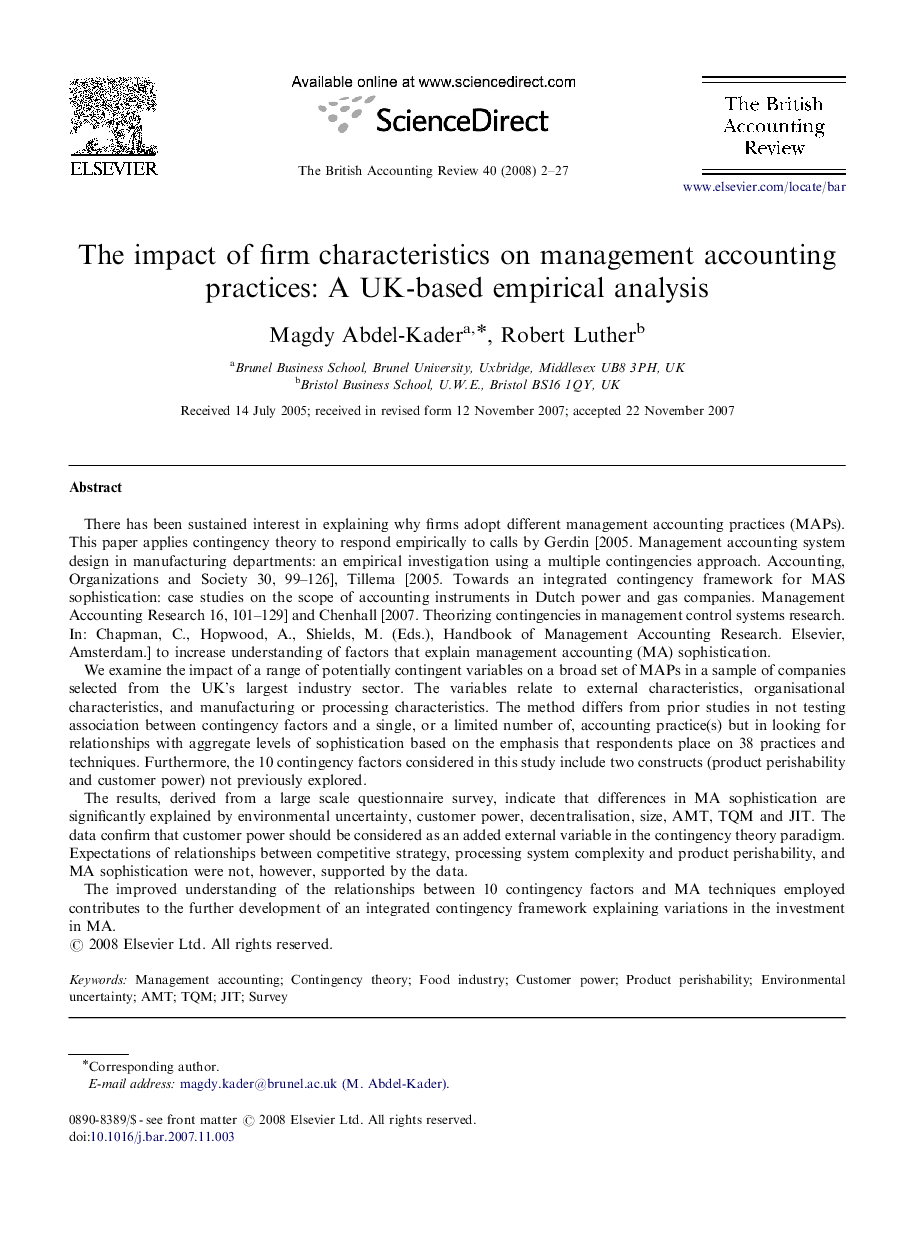| Article ID | Journal | Published Year | Pages | File Type |
|---|---|---|---|---|
| 1004197 | The British Accounting Review | 2008 | 26 Pages |
There has been sustained interest in explaining why firms adopt different management accounting practices (MAPs). This paper applies contingency theory to respond empirically to calls by Gerdin [2005. Management accounting system design in manufacturing departments: an empirical investigation using a multiple contingencies approach. Accounting, Organizations and Society 30, 99–126], Tillema [2005. Towards an integrated contingency framework for MAS sophistication: case studies on the scope of accounting instruments in Dutch power and gas companies. Management Accounting Research 16, 101–129] and Chenhall [2007. Theorizing contingencies in management control systems research. In: Chapman, C., Hopwood, A., Shields, M. (Eds.), Handbook of Management Accounting Research. Elsevier, Amsterdam.] to increase understanding of factors that explain management accounting (MA) sophistication.We examine the impact of a range of potentially contingent variables on a broad set of MAPs in a sample of companies selected from the UK's largest industry sector. The variables relate to external characteristics, organisational characteristics, and manufacturing or processing characteristics. The method differs from prior studies in not testing association between contingency factors and a single, or a limited number of, accounting practice(s) but in looking for relationships with aggregate levels of sophistication based on the emphasis that respondents place on 38 practices and techniques. Furthermore, the 10 contingency factors considered in this study include two constructs (product perishability and customer power) not previously explored.The results, derived from a large scale questionnaire survey, indicate that differences in MA sophistication are significantly explained by environmental uncertainty, customer power, decentralisation, size, AMT, TQM and JIT. The data confirm that customer power should be considered as an added external variable in the contingency theory paradigm. Expectations of relationships between competitive strategy, processing system complexity and product perishability, and MA sophistication were not, however, supported by the data.The improved understanding of the relationships between 10 contingency factors and MA techniques employed contributes to the further development of an integrated contingency framework explaining variations in the investment in MA.
